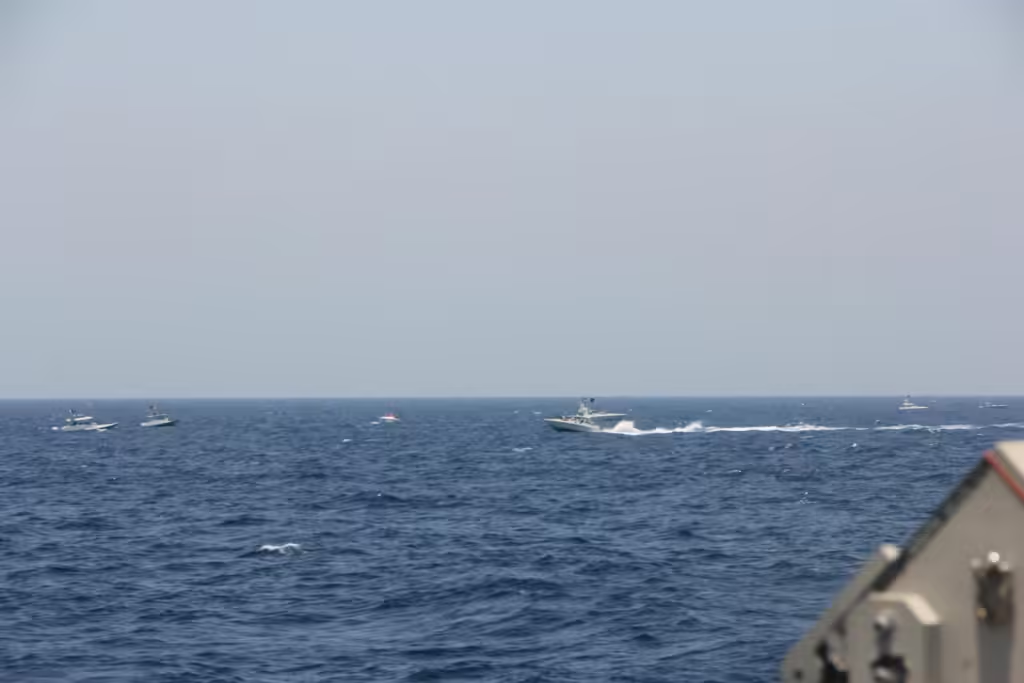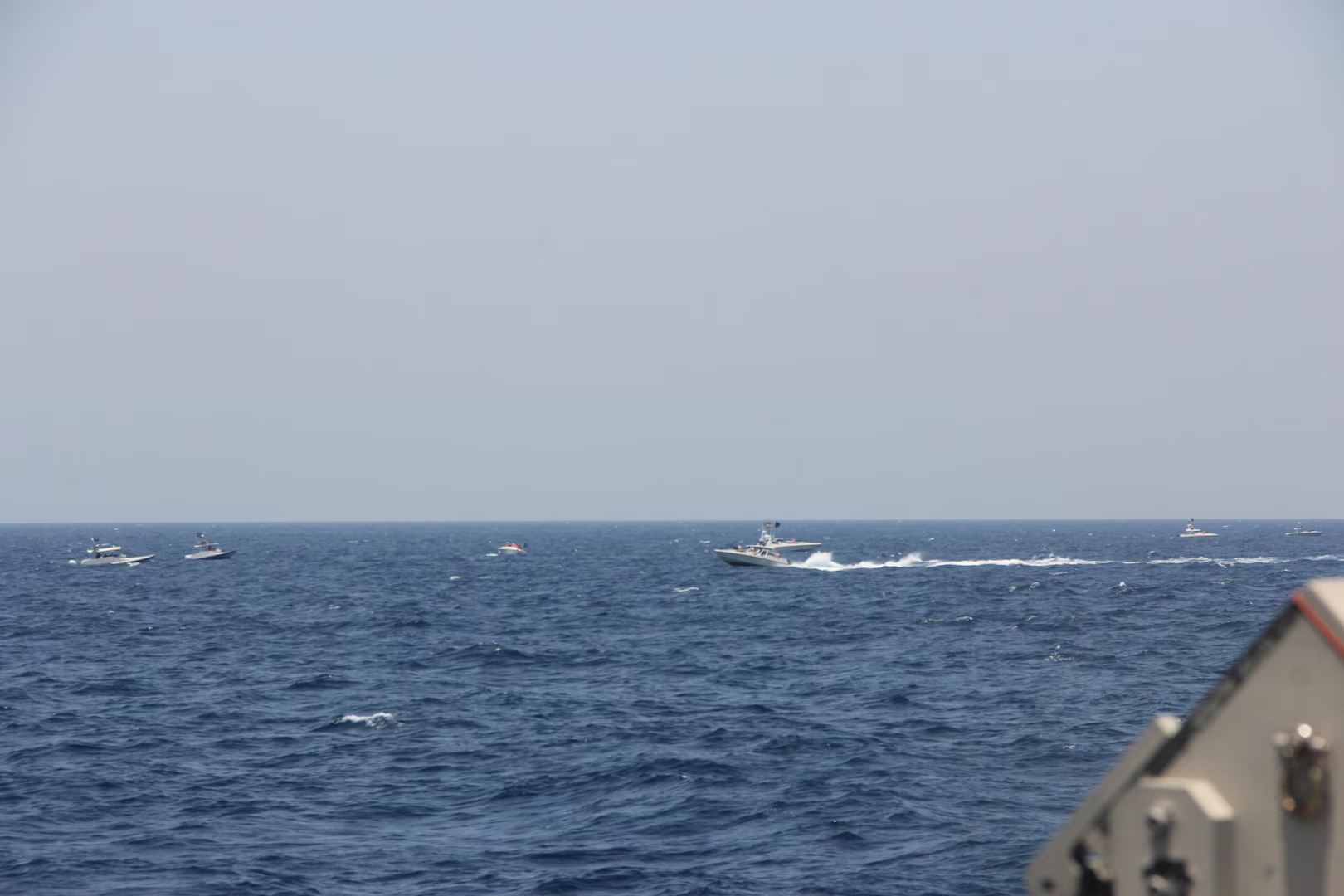Unsafe and Unprofessional Interaction with IRGCN FIAC in Strait of Hormuz

NAVAL SUPPORT ACTIVITY BAHRAIN – On May 10, 2021, the Iranian Islamic Revolutionary Guard Corps Navy (IRGCN) fast in-shore attack craft (FIAC) exhibited unsafe and unprofessional behavior while maneuvering close to U.S. naval vessels transiting the Strait of Hormuz. This interaction posed a significant risk to the safety of U.S. forces, violating international maritime laws.
A fleet of 13 IRGCN FIAC, armed with machine guns, aggressively approached the U.S. Navy guided-missile cruiser USS Monterey (CG 61), patrol coastal ships USS Thunderbolt (PC 12), USS Hurricane (PC 3), and USS Squall (PC 7), Coast Guard patrol boats USCGC Wrangell (WPB 1332) and USCGC Maui (WPB 1304), and the guided-missile submarine USS Georgia (SSGN 729). The U.S. naval vessels were conducting a lawful transit passage in the Strait of Hormuz, escorting the USS Georgia, which was transiting on the surface.
Two of the IRGCN vessels separated from the group and approached the U.S. ships Maui and Squall at high speed, exceeding 32 knots, with their weapons uncovered and manned. The remaining 11 FIAC maintained a position that placed the U.S. ships between the two groups of IRGCN vessels.
To de-escalate the situation and ensure safety, U.S. crews issued multiple warnings to the IRGCN vessels. Despite repeated bridge-to-bridge verbal warnings, acoustic device signals, and the internationally recognized danger signal of five short blasts from the ship’s horn, the two IRGCN vessels closed within 300 yards. In response, Maui fired warning shots. The IRGCN vessels continued to ignore warnings and closed within 150 yards, prompting Maui to fire additional warning shots. Eventually, the IRGCN vessels altered course and distanced themselves from the U.S. forces.
The IRGCN vessels’ maneuvers, coming within 150 yards of Maui at high speed, were dangerously close and posed an immediate threat to the ships and their crews. The IRGCN’s actions were not only unsafe and unprofessional but also violated internationally recognized maritime laws and customs, increasing the risk of miscalculation and collision.
Throughout the interaction, U.S. naval crews demonstrated professionalism and superior seamanship. The U.S. Navy expects the IRGCN to operate with due regard for the safety of all vessels as mandated by international law. The U.S. Navy will continue to operate wherever international law permits, promoting a rules-based international order in the region. Although not an aggressor, U.S. naval forces are trained to conduct effective defensive measures when necessary to ensure the safety of their vessels and personnel.





